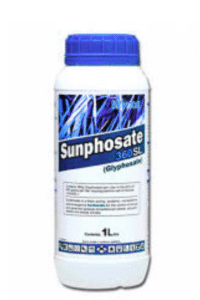Farming in Nigeria today is not what it used to before. The battle with weeds can make or break a harvest, and that is where herbicides step in. For farmers, agro-dealers, and even small buyers, knowing the real cost of these weed-control solutions is not just about saving money,it’s about survival, profit, and food security. So, how much do herbicides actually cost in Nigeria right now? Let’s break it down together.

Current Average Prices of Herbicides in Nigeria (2025-2026 Update)
Paraquat Herbicide Price in Nigeria
Paraquat cost between ₦6,500 to ₦9,000 (1L) it a Fast-acting, non-selectiveand widely used.
Glyphosate Herbicide Price in Nigeria
Glyphosate cost between ₦7,000 to ₦10,500 (1L) it is Popular for its effectiveness on a broad range of weeds.
Atrazine Herbicide Price in Nigeria
Atrazine cost between ₦5,500 to ₦8,000 (1L)it is Commonly use for maize and sugarcane farms.
Force Up Herbicide Price in Nigeria
Force Up Herbicide cost between ₦6,800 to ₦9,500 (1L) it is a Trusted glyphosate-based brand in Nigeria.
Rooter Herbicide Price in Nigeria
Rooter Herbicide cost between ₦6,200 to ₦8,800 (1L) it is a Strong weed control, especially for stubborn grasses.
Lagon Herbicide Price in Nigeria
Lagon Herbicide cost between ₦6,000 to ₦8,500 (1L) it is very Effective for selective weed management.
Here is the thing: these numbers are not carved in stone. A farmer in Kano might pay a little less than someone in Lagos because of supply chains and distribution costs. And when the planting season hits full swing, demand drives the prices up.
What Are Herbicides and Why Are They Important in Nigeria?
Herbicides are chemicals designed to kill or control weeds. And if you have ever farmed, even just a small piece of land, you know weeds are no joke. They compete with crops for nutrients, sunlight, and water. Left unchecked, they can strip a farmer of half their harvest before it even begins.
Using herbicides is not just about convenience. It is about survival in a tough agricultural climate. They save time, reduce labor costs, and make it possible for farmers to focus on other essential parts of farming like improving soil health or tending to their crops properly.
Now, in Nigeria, the story runs even deeper. Farming is not just business here, it is livelihood, it is tradition, it is what puts food on the table for millions. With both smallholder farmers and large-scale producers working the soil, the demand for herbicides has grown rapidly. Why? Because the need to feed a rising population can’t be met with manual weeding alone. Farmers are realizing that herbicides are not just a tool, they are a game-changer.
Conclusion
Let me leave you with this… The truth is, herbicide prices in Nigeria don’t stand still. They rise, they fall shaped by the brand, the type, the season, even the hands that sell them. And for a farmer, that uncertainty can feel heavy.
But here’s the thing: knowledge is power. The more you stay informed, the better choices you can make choices that protect your crops, your income, and your peace of mind.
I believe this with all my heart: when farmers gain access to quality, affordable herbicides, Nigeria gains more than higher yields. We gain security. We gain hope. We gain the promise of a future where food is never scarce, and dreams grow as surely as the crops in our fields.
So stay watchful, stay wise… and keep moving forward. Because every informed step you take brings us all closer to a harvest worth celebrating.
Frequently Asked Questions.
1. What is the average cost of herbicides in Nigeria?
Let me be real with you the price of herbicides in Nigeria doesn’t sit still. It moves with the season, the brand, and even the exchange rate. On average, small packs can go for a few thousand naira, while bigger containers from well-known brands can push much higher. Think of it like this: the more trusted and effective the herbicide, the more you’ll pay. But trust me, buying quality is cheaper in the long run than wasting money on fake or diluted products.
2. Which herbicide is most effective for maize farms in Nigeria?
I have seen farmers argue over this one, but here’s the truth: no single herbicide is “the king” for maize. It depends on your farm’s weed pressure. Selective herbicides like Atrazine are often used on maize because they target weeds without harming the crop. On the other hand, some farmers mix options for stronger control. The bottom line? The best herbicide is the one that matches your farm’s unique conditions not just what worked for your neighbor.
3. Where can farmers buy affordable herbicides in Nigeria?
Here’s the thing cheap doesn’t always mean affordable. You can find herbicides at agro-input shops in local markets, licensed distributors, or even online agro stores. But I’ll say this straight: always look for NAFDAC-approved products. Saving a few naira on fake herbicides will cost you yield, time, and peace of mind. Buy smart, not just cheap.
4. What is the difference between selective and non-selective herbicides?
Think of selective herbicides as “sharpshooters.” They kill specific weeds but leave your crops standing tall. Non-selective herbicides, on the other hand, are like wildfires they burn down everything green in their path, crops included. That’s why non-selective ones are often used to clear land before planting. Choosing between them is all about timing and purpose.
5. Are imported herbicides more expensive than local ones?
Most times, yes. Imported herbicides usually cost more because of shipping fees, exchange rates, and brand reputation. But here’s the twist expensive doesn’t always mean better. Some locally produced herbicides in Nigeria work just as well if they’re authentic and properly registered. The trick is to focus on quality and effectiveness, not just the label.